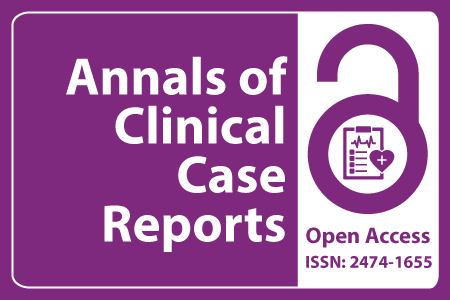
Journal Basic Info
- Impact Factor: 1.809**
- H-Index: 6
- ISSN: 2474-1655
- DOI: 10.25107/2474-1655
Major Scope
- Psychiatry and Mental Health
- Genetics
- Asthma
- Nephrology
- Geriatric Medicine
- Microbiology
- Chronic Disease
- Endoscopy
Abstract
Citation: Ann Clin Case Rep. 2022;7(1):2222.DOI: 10.25107/2474-1655.2222
When a Horse is a Zebra: The Importance in Maintaining a Broad Differential for Pediatric Cardiomyopathy
Catherine Hayes, Abigail McRea*, Jessica Macdougall, Christopher Chew, Benny L Joyner Jr. and Robert J Hartman
Department of Pediatrics, University of North Carolina at Chapel Hill Children’s Hospital, USA
*Correspondance to: Abigail McRea
PDF Full Text Case Report | Open Access
Abstract:
Pediatric heart failure is an uncommon but potentially life-threatening diagnosis. The differential diagnosis is broad and includes infection, structural abnormalities, arrhythmias, cardiomyopathies, toxidromes, and high output state. This case report highlights the importance of considering toxic ingestion when evaluating severe pediatric heart failure. This patient presented as a transfer to our institution for consideration of Extracorporeal Life Support (ECLS) initiation in the presence of poor ejection fraction and hypotension refractory to pressor management. Initial labs were significant for elevated cardiac markers and leukocytosis with decreased left ventricular systolic cardiac function demonstrated on echocardiogram. Prior to ECMO initiation, the patient’s blood pressures improved and she self-extubated on hospital day two. After stabilization, further medical history was elicited from the patient and her family and she was noted to be taking guanfacine and dextroamphetamineamphetamine at home. Consultation with Poison Control confirmed the suspicion that the association of patient’s presenting vital sign and mental status abnormalities could be secondary to co-ingestion of the patient’s home medications; further history revealed an intentional overdose of guanfacine and dextroamphetamine-amphetamine. The patient recovered on the pediatric floor after supportive management and was then transferred to an inpatient psychiatric facility for further care. She was discharged in good condition after 15 days with outpatient cardiology follow up. This patient’s case reveals the importance of including toxidromes in the differential for pediatric heart failure and highlights how co-ingestions may lead to a misleading initial clinical picture.
Keywords:
Cite the Article:
Hayes C, McRea A, Macdougall J, Chew C, Joyner BL Jr., Hartman RJ. When a Horse is a Zebra: The Importance in Maintaining a Broad Differential for Pediatric Cardiomyopathy. Ann Clin Case Rep. 2022; 7: 2222..













